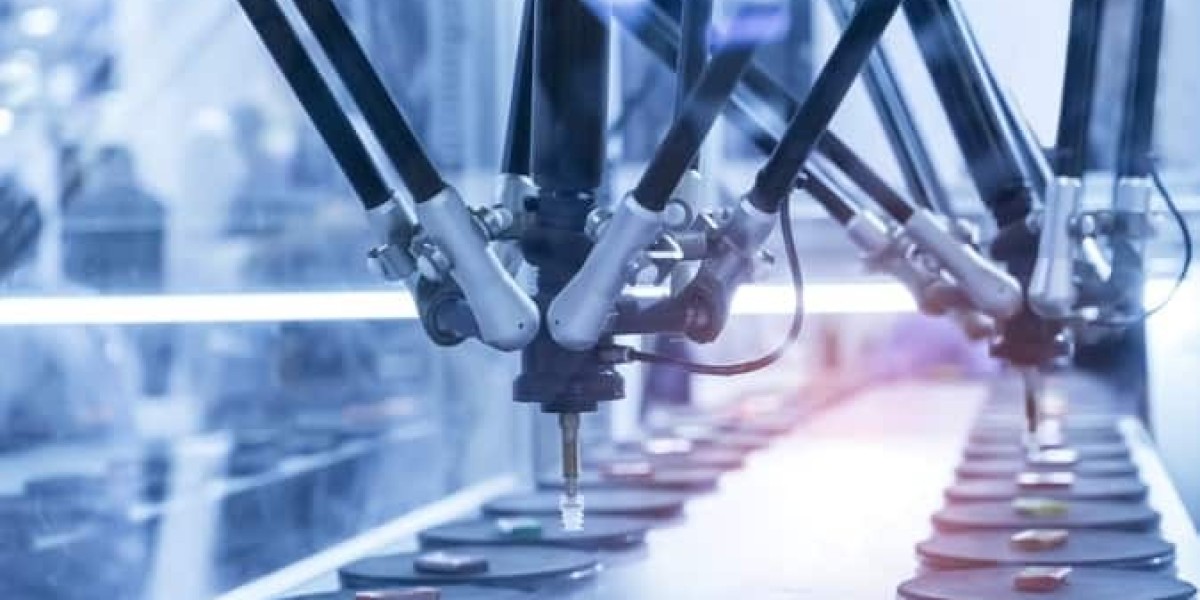Assembly line systems have reshaped manufacturing processes since their introduction during the Industrial Revolution. By breaking down production into sequential tasks, this system allowed industries to achieve mass production, increase efficiency, and reduce costs. Over time, assembly lines have evolved, and today, cutting-edge technologies such as automation, robotics, and artificial intelligence (AI) are transforming how products are assembled.
Companies like Expert Technologies Group are at the forefront of this transformation, offering modern assembly line solutions that help businesses optimise production. This article explores the history, development, and future of assembly line systems, highlighting their critical role in manufacturing.
The Industrial Revolution: The Dawn of Assembly Line Production
The Industrial Revolution (late 18th to 19th century) marked the transition from manual craftsmanship to mechanised production. Factories needed efficient ways to meet rising consumer demand, and assembly line production emerged as a game-changer.
Assembly lines divided the manufacturing process into smaller, standardised tasks, allowing workers to focus on specific operations. This approach sped up production and reduced the reliance on skilled artisans, making it possible to produce goods at a lower cost.
A key milestone came in 1913, when Henry Ford revolutionised automobile manufacturing by introducing the moving assembly line for the Model T. This innovation reduced production time from 12 hours to just 90 minutes, making cars affordable to the average consumer. Ford’s success popularised the concept of assembly line production across industries such as textiles, steel, and consumer goods.
Modern Assembly Line Systems
In the 21st century, assembly line production has evolved to meet the demands of global markets. With the integration of automation, robotics, and data-driven technologies, modern assembly lines are more efficient, flexible, and precise than ever before. Automated systems handle repetitive tasks, reducing the risk of human error, while sensors and AI ensure real-time quality monitoring.
Expert Technologies Group plays a pivotal role in modern manufacturing by developing bespoke assembly line solutions for businesses. Their systems offer a blend of automation and flexibility, allowing companies to meet market demands while maintaining consistent product quality.
Key Benefits of Assembly Line Systems
1. Enhanced Productivity
Automated systems work faster and more accurately than humans, increasing output and ensuring production lines run continuously without breaks.
2. Reduced Labour Costs
By automating routine tasks, companies reduce dependence on manual labour, lowering operational costs while reallocating human resources to higher-value roles.
3. Improved Quality Control
Assembly lines standardise production, ensuring that each product meets consistent quality standards. Automated quality checks can detect defects early, preventing costly rework.
4. Flexibility and Adaptability
Modern assembly lines are modular, allowing manufacturers to switch between products quickly, meeting evolving customer demands with minimal downtime.
5. Safety and Risk Reduction
Automation eliminates the need for workers to perform dangerous tasks, improving workplace safety and reducing the likelihood of accidents.
Challenges in Assembly Line Production
Despite the many advantages, manufacturers face several challenges with assembly line systems:
- High Initial Costs: Investing in advanced machinery and automation technologies can be expensive.
- Maintenance and Downtime: Regular maintenance is required to prevent breakdowns and disruptions in production.
- Training and Workforce Transition: As automation increases, workers need new skills to operate and maintain complex systems.
- Balancing Automation and Customisation: Fully automated lines can struggle with small-batch or highly customised production.
Expert Technologies Group addresses these challenges by offering customised solutions that combine automation with flexibility. Their expertise ensures businesses can integrate new technologies smoothly, optimising operations while minimising costs.
The Future of Assembly Line Systems: Industry 4.0 and Beyond
The advent of Industry 4.0 is reshaping assembly line systems with smart technologies that enhance efficiency and connectivity. Future assembly lines will be powered by AI, IoT, real-time analytics, and collaborative robots (cobots). These systems will adapt to changing production needs, offering even greater flexibility and responsiveness.
Key innovations driving the future of assembly line production include:
- Predictive Maintenance: IoT sensors monitor machine performance in real time, identifying potential issues before they cause downtime.
- Digital Twins: Virtual models of production lines simulate operations to optimise efficiency and test new processes before implementation.
- Collaborative Robots (Cobots): Cobots work alongside human operators, providing the flexibility needed for complex or customised production tasks.
- Smart Data Analytics: Real-time data enables manufacturers to optimise production processes, improve quality control, and respond quickly to market changes.
Expert Technologies Group offers solutions that embrace these innovations, helping businesses implement smart manufacturing strategies that keep them competitive in a fast-changing global market.
Sustainability in Assembly Line Production
As sustainability becomes a priority, manufacturers are focusing on eco-friendly practices. Modern assembly lines integrate lean manufacturing principles to eliminate waste and improve resource efficiency. Automation also minimises scrap and ensures energy-efficient production processes.
Smart technologies optimise energy usage, ensuring machines operate only when needed, reducing the carbon footprint of manufacturing operations. Expert Technologies Group helps companies implement sustainable assembly line solutions, aligning production with environmental goals while maintaining high efficiency.
Conclusion
Assembly line systems have come a long way since their origins during the Industrial Revolution, evolving from manual processes to sophisticated, automated systems. Today, assembly line production is essential to industries worldwide, providing the efficiency and scalability needed to meet market demands.
With companies like Expert Technologies Group leading the way, manufacturers can leverage advanced technologies to optimise their operations, reduce costs, and maintain high product quality. As industries embrace Industry 4.0, the next generation of assembly lines will be smarter, more flexible, and more sustainable.
Assembly line systems are not just a legacy of the past—they are the foundation for the future of manufacturing. By embracing new technologies and sustainable practices, businesses can stay competitive, efficient, and adaptable in a rapidly changing industrial landscape.









